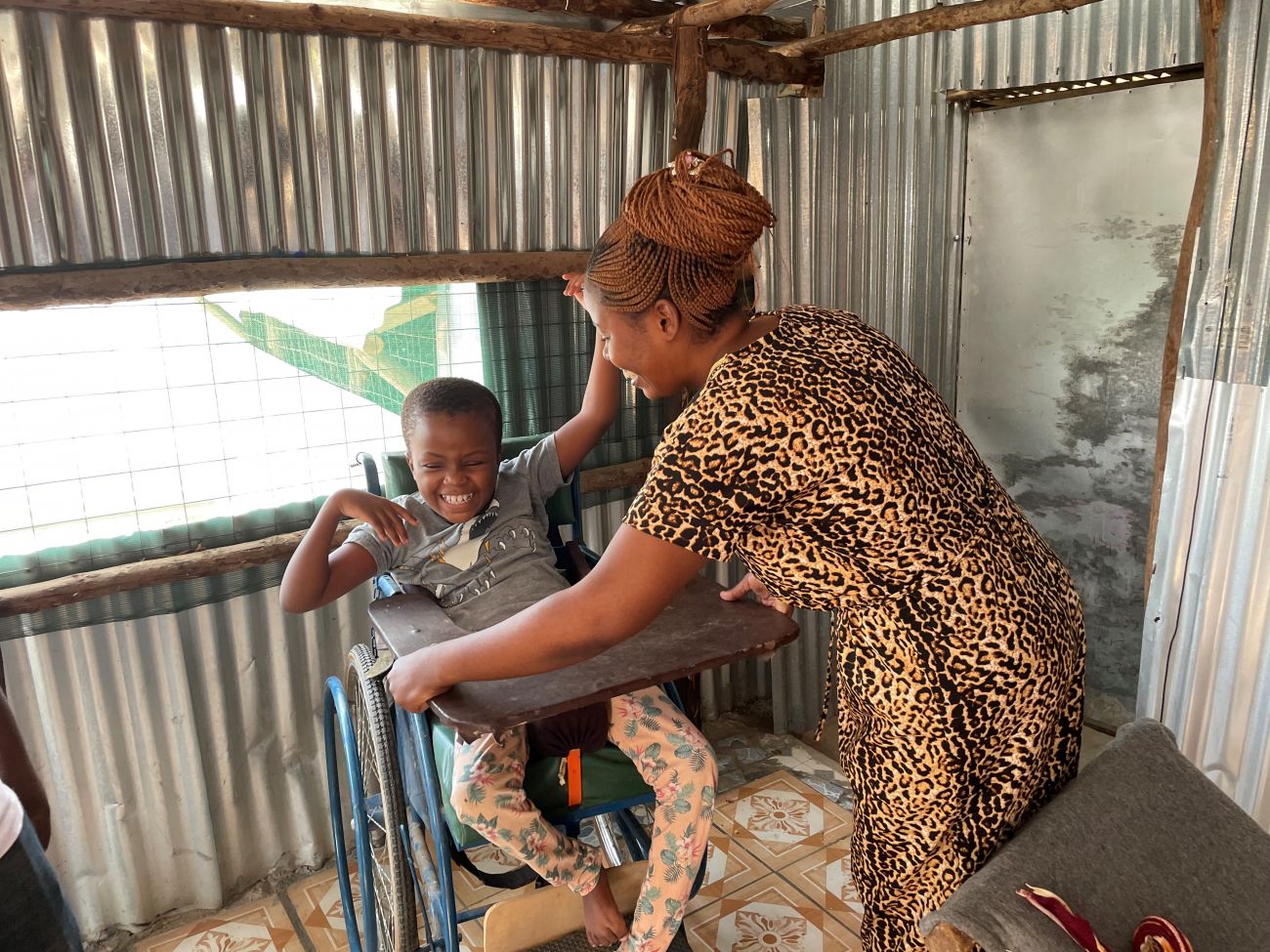Humanity & Inclusion (HI) runs inclusive projects in support of people with disabilities living in Kalobeyei camp. Lydia, aged 10, lives with paralysis and other disabilities caused by hydrocephalus. Whereas Jolie, aged 6, has cerebral palsy. Thanks to HI, they are both receiving rehabilitation sessions.
A family in difficulty
Lydia and Jolie’s family fled the DRC and sought refuge in the Kalobeyei refugee camp in Kenya. The girls have six siblings. Jolie has difficulty walking and talking, but Lydia's health is even more fragile.
"When we arrived in Kalobeyei, we looked for a place to get help," explains Armele, Jolie and Lydia's sister. "We were told to go to the HI rehabilitation centre. Now, Lydia and Jolie have rehabilitation sessions four times a week."
Home-based therapy
To get to their rehabilitation sessions, Jolie and Lydia had to walk for 45 minutes in the desert. So when the two sisters began to show signs of improvement, the HI specialists decided to organise home-based rehabilitation sessions for them.
HI trained physiotherapists and community rehabilitation workers in home rehabilitation techniques. Now, these rehabilitation specialists visit the girls at home two to three times a week to massage their muscles and take them through their exercises.
Valuable help for Lydia and Jolie’s mother
In addition to the rehabilitation sessions, HI is supporting the girls' mother to set up her business. She has been given a grant to stock her clothing store in the village. Thanks to the increase in her income, Lydia and Jolie's mother can provide for her eight children better. For example, she has been able to buy a new mattress so they can sleep more comfortably.
The rest of the family is receiving psychosocial support to help them look after their sisters.
Encouraging progress
Jolie has been given a walker to help her walk long distances. The specialists are still working on her balance. Now that she can walk on her own, she has been enrolled in school. Today, Jolie likes to run and sing.
"Jolie has come a long way," says Armele. "She was dependent on a caregiver for all her daily activities until she started the rehabilitation programme. Now she can talk, get around and go to school."
Lydia's disability is more severe, but her family has seen improvements in her movements and behaviour. She is delighted when Armele picks her up and puts her in her special wheelchair. The wheelchair supports her posture and allows her to get out of the house.
“HI helps us a lot. We are one big family”, concludes Armele.





